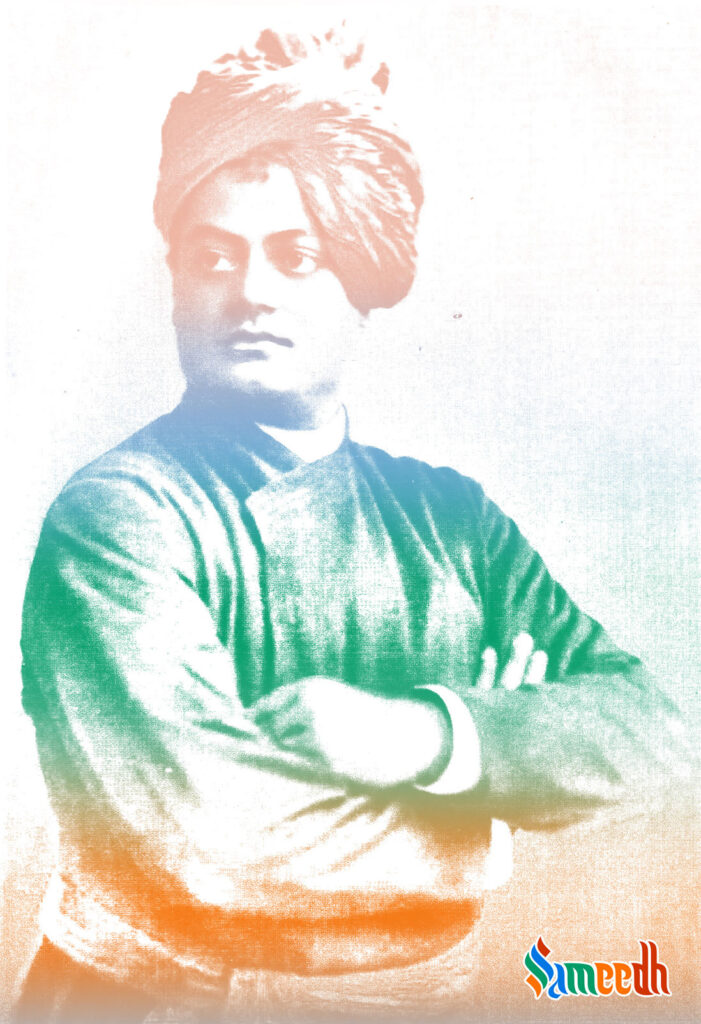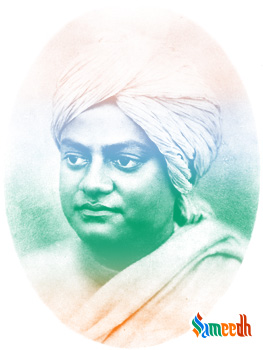Life journey and lessons from the great Hindu monk and philosopher, how he reformed Hinduism in the west while empowering and uplifting the lives of many.

Image Source: Thomas Harrison
Swami Vivekananda was a great soul that carried the Vedanta philosophy, Yoga to the west and exceptionally reformed the way people perceived Hinduism. In India, “Swami” is a term adopted by people who become monks and renounce worldly pursuits. After the name, “Vividishananda”, he took up “Vivekananda”, which meant “the bliss of discerning wisdom” wherein “Vivek” means wisdom or knowledge and “Ananda” equates to joy.
He is known for delivering an impactful speech which commenced with the line “Sisters and brothers of America”, introducing Hinduism in Chicago in 1893 inside the Parliament of the World’s Religions and moving many westerners from their very core.
It was the certain events that shaped the life of this legend so he could one day go on imparting his spiritual wisdom, enlightenment and uplight the lives of people in poverty and suffering.
Greatness in making
On the 12th of January 1863, parents Vishwanath Dutta and Bhubaneswari Devi were blessed with a son named Narendranath Dutta and the world was bestowed with a great Hindu monk, philosopher, scholar and spiritual leader. Born in an affluent family with a father as an attorney and a religious mother, Swami Vivekananda grew up to be an avid reader with a massive inclination towards the Hindu scriptures, spirituality and philosophy. Narendranath was known for being a “Shrutidhara”, one with a prodigious memory. He has often left people amazed by reading multiple books in a day thoroughly such that he could quote verbatim and understood the text very well.
This simpleton who harboured a love for Khichdi and tea, against the opposition of Hindu pundits, was also a trained and qualified classical singer with a keen interest in sports. It was around the mid-1880s, that the learned monk took 7 wickets in a match at Eden Gardens, leaving the European opponent and audience stunned.
After the unfortunate demise of his father in 1884, the family was pushed into impoverishment and it was during these times that Vivekananda used to lie about receiving lunch or dinner invitations just so his other family members could get a bigger portion of food. Such qualities of selflessness took him a long way.
Power of Meditation
Besides being an all-around individual, he practised meditation from an early age, building up to immense concentration and focus. An extraordinary instance is from when he was in Chicago while taking a stroll. Some young boys at the bank of a river were unable to shoot at floating eggshells in the water with airguns, the targets kept getting rolled up and down with the flow of water. After being spotted observing, a kid asked Swami Vivekanda if he would like to try. The courageous monk agreed and shot 12 times, hitting the target each time. Awestruck, he was asked whether he has been practising this to which he replied he hasn’t practised shooting ever in his life. His simple yet incredibly effective secret was to focus all your concentration on just the task at hand and you will attain great heights. These were the magnificent benefits of Meditation.

The beginning of an era
It was in 1881, that Narendranath’s life changed when he first met his guruji Ramkrushna Paramhans, a Hindu spiritual leader, mystic and an ardent devotee of the goddess Kali. Swami wasn’t quick to accept Ramkrushna as his teacher though. He even questioned upon meeting whether his guru believed in god and if so, how can it prove it. It was his mentor’s reply which left him impressed, “Because I see Him just as I see you here, only in a much intenser sense.” From then on, the teenager visited his guruji regularly and eventually surrendered himself as a devoted disciple.
Through his journey as a monk, he acquired knowledge of the Vedanta philosophy of Hinduism which he later went on teaching the world. His Guruji taught him and the other devotees the sense of brotherly love and renouncing worldly pleasures. His guruji distributed ochre robes amongst his disciples and sent them off to beg for food, laying the firm foundation of a new monastic order. Even after Ramkrushna took his last breath, Vivekananda carried forward the legacy by first touring the country and later on the western world. It was during these travels that he felt the most for the ones in need. That is when he had decided, he wanted to dedicate his life to empowering needy people by educating them and making them equipped with payable skills. He wanted to instill the sense of a strong morality in people too. He, later on, found the Ramkrushna Mission, keeping Belur Math as the chief headquarters to enable and execute these noble causes to a great extent after the name of his mentor, guide.
It was words like “Arise, awake, and stop not till the goal is reached” and “The greatest religion is to be true to your own nature. Have faith in yourselves” that till date inspires the nation and world.
